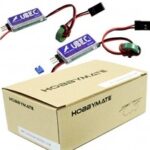Experiencing car troubles can be incredibly frustrating, especially when your vehicle starts acting erratically. Imagine this: your 2000 Nissan Altima begins stalling while accelerating. Despite this, it manages to restart, only to stall again under load. The ominous “Service Engine Soon” light illuminates, signaling potential problems under the hood. In a bid to diagnose the issue, a friend connects an OTC scanner. Surprisingly, after this scan, the car refuses to start at all. It cranks, but there’s no ignition. No error codes are initially retrievable, leaving you in the dark.
Left overnight, a glimmer of hope appears the next morning when the car starts. A quick fix attempt involves changing the fuel filter and oil. For a day, things seem normal, but the stalling returns, this time with your daughter behind the wheel. Driven by the need for a proper diagnosis, you decide to invest in your own OBD2 scanner, ordering an Ancel 410 online.
While waiting for the new scanner to arrive, resourcefulness kicks in. Online research on YouTube points towards a possible culprit: a vacuum hose damaged by rodents. Upon inspection, a chewed hose and remnants of a nest confirm this suspicion. Replacing the hose seems to resolve the stalling issue, and road tests confirm smooth driving. However, the “Service Engine Soon” light stubbornly remains lit. It appears the vacuum leak was the cause of the stalling and triggered the warning light.
With the car running again, your friend returns with his OTC OBD scanner to finally retrieve those error codes. This time, success! Codes P0100, P0505, P0325, P1490, P0446, and P0464 are revealed. But here’s the catch: connecting the scanner again mysteriously causes the car to stall and refuse to restart, even after it was running smoothly. The “SES” light is still on, and now a new problem has emerged.
Back to YouTube for answers. The online automotive community suggests a possible explanation: scanners can sometimes disrupt the car’s Engine Control Module (ECM), essentially the car’s computer. The solution? A hard reset of the ECM. This involves disconnecting both battery terminals and briefly connecting the disconnected cables together for about 10 seconds. This process discharges capacitors and can effectively reset the ECM, potentially allowing the car to start again.
This story highlights a common frustration: modern cars are heavily reliant on their computer systems. Sometimes, a simple scan can reveal error codes, but in other cases, it can inadvertently create new problems. If you find yourself in a situation where your car’s computer seems to be malfunctioning, especially after using a scanner, you might need to find a shop that has a scanner that can reprogram your car computer.
Reprogramming the car computer, or ECM/PCM (Powertrain Control Module), is a more advanced procedure than just reading error codes. It might be necessary if:
- Your car’s computer is corrupted: As seen in the story, scanners or electrical issues can sometimes cause computer glitches.
- You’ve replaced the ECM/PCM: A new or used replacement module often needs to be programmed to match your specific vehicle.
- You need to update software: Manufacturers sometimes release software updates to improve performance or fix bugs.
- You want to optimize performance: In some cases, reprogramming can be used to tune the engine for better fuel economy or power (though this can affect warranty).
Finding a shop equipped for ECM reprogramming is crucial. Not all auto repair shops have this capability. Look for workshops that advertise:
- Advanced Diagnostics: This often implies they have sophisticated scanners.
- ECM/PCM Reprogramming or Flashing: These terms directly indicate the service you need.
- Dealership Alternative: Independent shops specializing in computer diagnostics can be a cost-effective option compared to dealerships.
When searching for a “Shop That Has Scanner That Can Reprogram My Car Computer,” consider these factors:
- Technician Expertise: Ensure the shop employs technicians experienced in computer diagnostics and reprogramming.
- Scanner Type: Inquire about the type of scanners they use. Reputable shops will have professional-grade tools capable of handling reprogramming.
- Vehicle Make Specialization: Some shops specialize in specific car brands, which can be beneficial for complex computer issues.
- Reviews and Reputation: Check online reviews to gauge customer satisfaction and the shop’s expertise.
Dealing with car computer problems can be complex. While DIY solutions like ECM resets can sometimes work, professional diagnosis and reprogramming are often necessary. By finding the right “shop that has a scanner that can reprogram your car computer,” you can ensure your vehicle’s electronic brain is functioning correctly and get back on the road with confidence.

